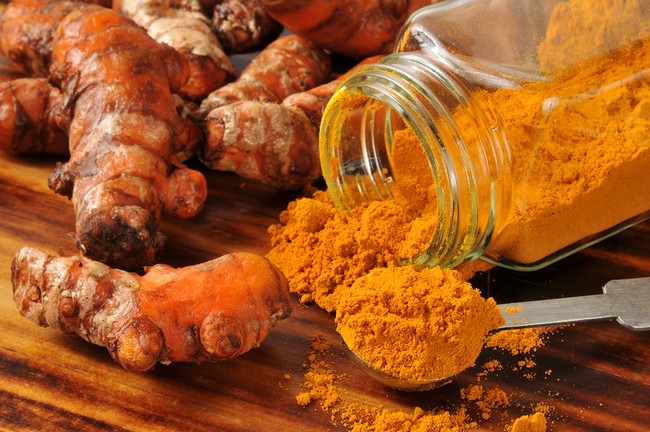- Make It Yourself Lavender Heart-Shaped Bath Bombs!
- 20 Things You Never Knew About “Down There”
- 12 Best Foods For Those Suffering From Arthritis Pain
- 12 Personal Hygiene Mistakes Almost Everyone Makes (Mom Never Told You About #4!)
- 15 Medicinal Plants And Herbs From The Cherokee People
- 12 Mind-Blowing Benefits Of Drinking Coconut Water During Pregnancy
- 12 Outstanding Winter Foods That Won’t Fatten You Up Like A Christmas Turkey
Turmeric: The Most Powerful Medicinal Plant on the Planet

Photo credit: bigstock.com
1. Lowers the Risk of Heart Disease
Heart disease is the number one killer in America and one of the biggest killers in the world. Although there are various contributing factors as to how heart disease gets started, curcumin can help stop or reverse some of the steps that lead to heart disease, Curcumin is known to improve the lining of the blood vessels, which will help to regulate blood pressure and blood clotting. One study showed that consuming curcumin was just as effective as exercise in improving blood flow to the heart. Curcumin also reduces oxidation and inflammation in the body, which are also attributed to hear disease. One study used 121 subjects who were about to undergo coronary artery bypass surgery. Subjects received either a placebo or 4 grams of curcumin each day for a few days before and after their surgery. The group that received the curcumin had a 65 percent lower risk of having a heart attack while at the hospital.
2. Stomach Cancer and Ulcers
One study performed in 2002 showed that curcumin inhibits the growth of the helicobacter pylori strains in vitro. It should be noted that this type of bacteria has been linked to the development of ulcers, and later, these ulcers can turn cancerous. A methanol extract of the dried powdered form of the turmeric root was tested against all 19 strains of the H. pylori bacteria and it was shown to inhibit the growth of all 19 strains. This means that consuming curcumin can help to protect you from both stomach ulcers as well as stomach cancer.
3. Fights Against Chronic Disease and Premature Aging
Since curcumin has been shown to have powerful antioxidant compounds, as well as being an anti-inflammatory agent, it only makes sense that it would fight against the development of chronic diseases that often start due to inflammation in the body. Antioxidants stop the premature aging process by killing off free radicals in the body, which harm our tissue on a cellular level.
Continue to Page 4

































Ellis Drewery
Aug 3, 2015 at 1:05 pm
I have been taking turmeric for a couple of years now….and I don’t see all the wonderful benefits attributed to this herb. I have had a multitude of inflammatory issues with my ankle, hip and hands. I take celery seed extract, garlic, ginger, tart cherry extract, and turmeric, and still see very little signs that they do very much good. I do not have Rheumatoid Arthritis, just the maladies of aging in my joints. In comparing the day to day maintenance use of herbals against the benefit that can be derived from just one prescription tablet for inflammation, it is easy to see how detractors might disparage the use of natural remedies.
ce373
Aug 10, 2015 at 4:04 pm
Have you tried Glucosamine Condroitin with MGM? I have been on it since I was 52 and now am 71.5 and Praise the Lord not one ache or pain in my body by taking usually only one pill a day.
Ellis Drewery
Sep 9, 2015 at 4:15 am
Thanks for the suggestion, ce373. Glucosamine and Chondroitin have been included in almost every joint formula in existence for a long time now. MSM is relatively new but, I have taken it also in the past. I am now taking a supplement with collagen, boswellia, white willow bark, ginger, and a host of others. I intend to give it a three month trial before passing judgement.
ce373
Sep 10, 2015 at 2:11 pm
Some experienced people say that if it isn’t working after a year, but some change has been experienced, one probably isn’t taking the right dosage.
Glen
Aug 3, 2015 at 2:54 pm
i take a half a teaspoon with my powdered fiber supplement every day. i`ve seen this article 3 or 4 times now and it never tells us how much of the actual spice is needed to gain the benefits. so the article is really no help. but i guess when you get paid by the word…..